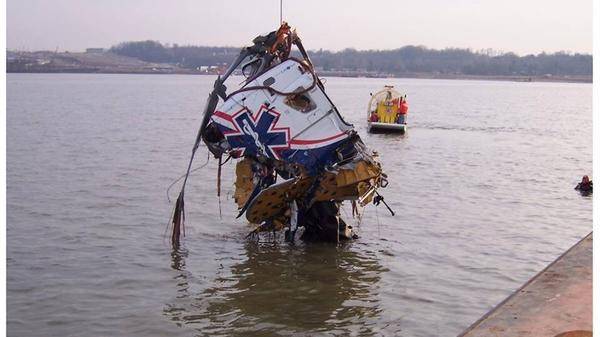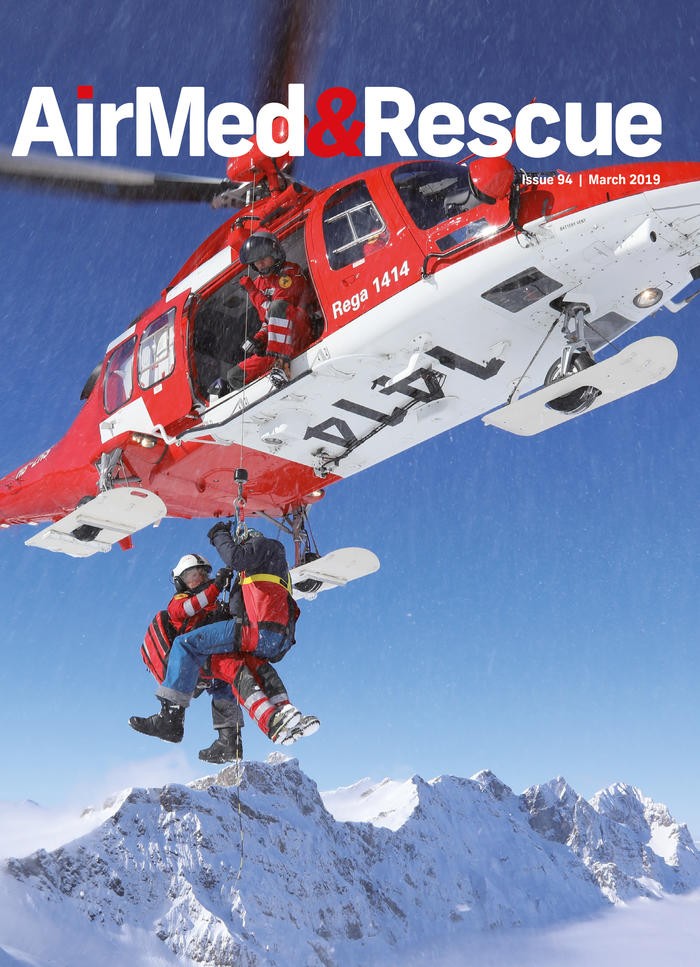Industry Voice - Lone survivor of a medical helicopter accident

Jonathan Godfrey was the sole survivor of an air medical helicopter crash in 2005. He wrote to AirMed&Rescue about his experience and what he’s learned from it
Fourteen years ago, I drove into work for a normal 24-hour flight shift. Never in my wildest imagination could I have predicted how much would change that day.
I remember clearly stopping at the grocery store because it was my turn to feed the base for the day. Nikki and I started the day together, but it would not be until evening when Joe came on shift, and we lifted for our first flight that evening after the sun had set. On the anniversary of the crash, I reflect not only on that night in 2005 but also on what I have learned, lived, accomplished or even failed to do with my life.
Not moving on
This year I want to answer some questions that I have heard along the way. It might be of interest to someone out there in the transport and flight world. Who cares? Get over it. When are you going to put this behind you? The simple answer is never – never, ever, ever. Even if I wanted to, I could not. I do not want to. The person who emerged from the water that night is very different from the person I was in my life before everything changed.
I am a nurse. I enjoy helping to heal people. It has always been a natural fit for my heart and mind. It only makes sense that after an experience such as mine, I would continue to find satisfaction (understatement) in attempting to prevent suffering that accompanies a crash as well as foster resilience within the professional realm of transport, flight, EMS, nursing and many other areas that I identify with. Preventing the senseless loss of life caused by incidents, accidents and crashes needs an army of people that carry a passion for safety and survivability. I am just one of those passionate people.
What does ‘Never Forget’ really mean? To me, it is bone deep personal and means Nikki and Joe. Only through an absolute miraculous sequence of events did I not join them and end my life story. If I had died, I would have wanted someone to carry on my legacy and suspect that they would want much of the same.

Standing cold, broken and alone in the river that night, one of my biggest fears was that my children would not know me while they grew up, even forget me. Their memory living on is crucial to peace in my soul. Nikki and Joe will never be forgotten, and I will do my part to make sure it never happens.
Surviving flight crew families, particularly those that have lost a loved one in the line of duty (LODD) are also dear to my heart.
It started just days after the crash when I became more acquainted with Nikki and Joe’s families. Drowning in my own survivors’ guilt and navigating what my place was in their lives was blinding and twistedly painful.
Drowning in my own survivors’ guilt and navigating what my place was in their lives was blinding and twistedly painful
They don’t make a Hallmark card for our dynamic. At one point all I could do is beg for forgiveness for being alive. I meet and correspond with many more families year after year and witness them in their varying stages of grief. Sometimes I am better at knowing what to say than others. My first goal is not to make it any worse. Their stories are littered with people who have meant well for the most part and wound up carelessly opening up old wounds, pouring salt into existing ones and delaying their needed healing. Sometimes they come back days, weeks or years later and report that a conversation between us helped in a small or big way. Those reports drive me to remain active on the National EMS Memorial Board as well as stay in contact with families in the process of healing.
What have I learned this year? I still fly full time in Washington, DC and when I have time, I travel and speak to groups on the topics of safety, survivability, and resilience. In doing so, I get to meet many people. Those friendships are rich with stories, laughter, wisdom, and endless entertainment. Trading opinions and information continuously shapes my views, hones my messages and helps to maintain my vigilance.
I have learned that yes, I am capable of being apathetic and losing a level of vigilance while doing the job. If I can let those cancers creep into my practice, everyone is susceptible, and no person is immune. I have as much nauseated anger seeing it in myself as I do seeing it in other people. I am equally as judgmental of others as I am of myself. It is the single most destructive force when safety is at stake.
Constant vigilance
Maintaining vigilance is uncomfortable and takes work, possibly even more work the longer that I am flying. What should I say to the young flight crew? This job can kill you. Many of my colleagues get uncomfortable when this is said, and some get offended. If that has never crossed your mind, you are a fool, and you need to consider a career change.
You don’t need to live scared or abandon your dream, but you need to become an expert at evaluating, managing and measuring risks and threats. This skill takes as much precedence as being a critical care provider. Safety is not a checkbox, a computerised test or an annual meeting, it is more akin to personal hygiene – put it on every day (or transport) and maybe even a couple more times during the day.
Vigilance, my friends and colleagues!

March 2019
Issue
In this issue:
Traumatic brain injury transports - best practice
Survival of the fittest - ALSE - Staying alive after a helicopter crash
Surf's up - Surf-based rescue techniques
Never forget - the lone survivor of a helicopter accident
Patient safety is the number 1 priority for ER24
Interview: Mikko Dahlman, Coptersafety
Provider Profile: LifeFlight Network
Company Profile: Sikorsky / Lockheed Martin
Case Study: AirLec Ambulance describes the challenges of an evacuation from a warzone
Jonathan Godfrey
For more than 12 years, Godfrey has presented his story of survival following an air medical helicopter crash to audiences all over the US and abroad highlighting safety culture, crash prevention, survivability, and resiliency. Godfrey is currently a director on the board of the National EMS Memorial Service. He is involved in many other projects such as Survivor’s Network, Vision Zero, Digital Safety Stories, and US Helicopter Safety Team.